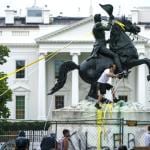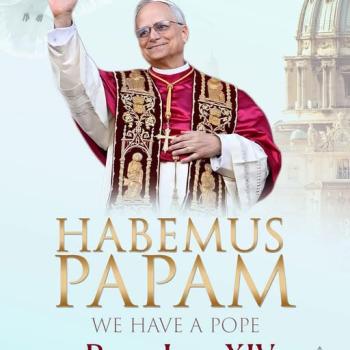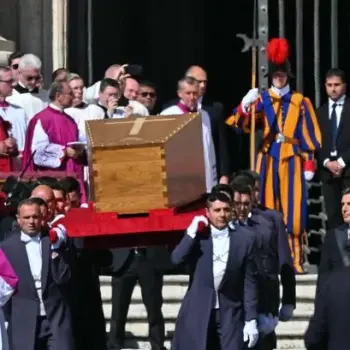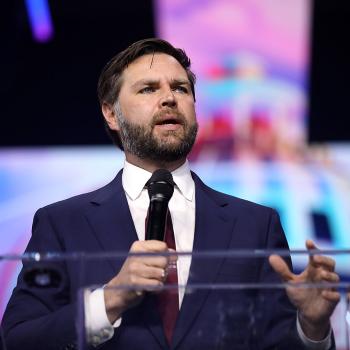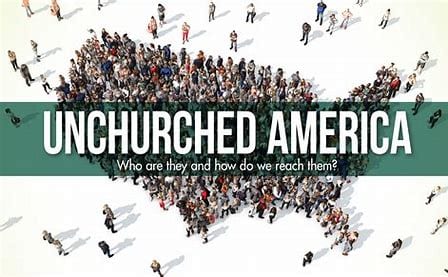
Pandemic Changes
This is the summer of our discontent. Like a long rolling wave in the midst of the sea, the coronavirus surges and ebbs. It is deterred not by lockdowns or openups, temperature or vacation plans. Guess what? Looks like we will have to live with this wretched illness, just like we live with all the other coronaviruses. Oh, we’ll get a vaccine fairly soon, but it won’t fare any better against this plague than against the flu–we’ll just feel better about it. Yet, while we endure, this pandemic is causing immense changes in our lives, and I’m not talking about wearing masks.
The Plague Is Unchurching Our Catholics
I’m in the field of religion, but I bet others in different occupations will have similar stories. Not long ago, I published a post on how Catholics won’t be coming back to Mass.
https://admin.patheos.com/blogs/ericbarr/2020/06/catholics-they-are-not-coming-back-unless/
Many people read that article and agreed with it. Unfortunately, however, I have more bad news. The plague we are suffering is unchurching our Catholics, particularly our Mass-going Catholics. Let me explain why this is such bad news, but why it also presents us an opportunity to rethink what being Catholic means.
Sunday Eucharist A Distant Memory So What Makes Me Catholic?
Sunday Eucharist will become a distant memory for most Mass-going Catholics. The Eucharist has already been basically forgotten by a large majority of Catholics. Yet, there are still millions of practicing Catholics who have found solace in this Sacrament of sacraments. As the pandemic drags on, the parishes have only marginally opened for Mass, and that fact is not going to change soon. The parishes aren’t responding well enough to bring people back in a timely way. Actually participating in the Eucharist is no longer simply showing up for the next Eucharistic celebration. So much has to be done to allow one to attend. There is registration, mask-wearing (try making kids who often don’t like to go to church feel positive about this mask-wearing experience–it is amazing how few children come to the Pandemic Experience of the Mass). Imagine sanitizing and re-sanitizing one’s hands and the pew in which one sits, plus no singing, and no congregating after Mass. Parishes can not accommodate the numbers should everyone wish to return, and many will find it too difficult to attend, or they will pass up the opportunity, allowing more fervent parishioners to have their space. In the end, there will be a gradual falling away, as I spoke of before, but with the added, horrific realization that many of those who choose not to go will forget why they came in the first place. A question will need to be raised. If the Eucharist is not central to Catholic life, what makes me a Catholic?
Cultural Catholics
Catholics, like Jews, will become even more cultural in name than practicing in reality. Already, statistics show that 60% or more of Catholics do not participate in the weekly or even bi-monthly Eucharist. Add another 30% that will absent themselves because of coronavirus complications. The Church could easily see only around 10% of its baptized members in this country participating in Eucharistic celebrations. This statistic is present already in some places in Europe. That reality exists because of the secularization of European culture. The same secularization is happening here, but will be exacerbated and accelerated because of the plague. For the best of intentions, bishops and laity conspire to weaken Eucharistic ties. They lift the obligation to attend Mass in order to help us be good citizens at the same time, by not congregating in large numbers. Bishops and people seem to think this wise.
An Absence of Personal Spirituality
The Unchurching of Catholics will lead to an absence of personal spirituality. One of the things the institutional Church has been good at is teaching families how to pray and live traditional Catholicism within the home. This was much more effective when families and the institution cooperated. In the last sixty years or so, families have forgotten, and the Church has labored with less success than before to instill such traditions. Praying and living the faith is about to be gone completely from most Catholics’ experience. Without the anchor of Eucharistic celebration, families will drift away and not know how to teach their children to pray or have traditions that will help them live a Catholic life.
Eradication of Religious Knowledge
The Unchurching of Catholics will nearly eradicate the religious knowledge of adherents. Without an association with the Eucharist, children will remain uneducated in the faith. Already this is seen in religious education programs that are not tied to the Eucharist. Attendance is spotty and retention year after year is episodic. In the last half-century, religious knowledge among Catholics in the United States has declined, but many still receive the basics through homilies, bulletins, programs in parishes and of course, religious education. But these are almost exclusively publicized at the weekly Sunday liturgy. It’s where people hear about opportunities and talk amongst themselves about these chances to learn more about the faith. By not going to the Eucharist, Catholics miss out, not receiving the Sacrament but also not receiving information about opportunities to enhance their religious life and knowledge.
Negating the Experience of Scripture
The Unchurching of Catholics will strip the Church of the experience of Scripture. It’s always a surprise when Catholics are made aware that their faith is much more Scripture-based than they think. We go through the New Testament every three years in the Sunday readings as well as much of the Old Testament. Our stained-glass windows teach many of the themes in Scripture, and our songs, particularly our Responsorial Psalms are firmly rooted in the Bible. That all goes away if Catholics do not attend weekly Eucharist.
Death of Community
The Unchurching of Catholics will result in the death of the community nature of Catholicism. More than any other Christian denomination, Catholicism is a community experience. There is no such thing as a solitary Catholic, but without the community experience, Catholicism will become a much more private, devotional, practice of Christianity, missing out greatly on the “where two or three are gathered” experience. A private apprehension of Catholicism is no experience at all. A Baptist can exist marooned on an island with his Bible. A Catholic? Not so much. We need each other.
Such a Dark and Depressing Future
How pathetic and sad this all sounds. Like lemmings racing forward, we approach the cliff of our destruction. Why are we not preparing for the challenges the Pandemic is forcing us to endure? Why are our leaders not responding? Why are we so complacent, confident that the Church will go on? No doubt it will survive, but there is a difference in survival and actually living to the fullest. Must we enter a new Dark Age before we renew ourselves? Do we actually think the Spirit is not speaking to us now? Are we so fearful of this virus that it has deafened us to the Word of God, urging us to find new ways to keep our Catholic experience strong?
But There Is Hope
I cannot just bemoan the encroaching darkness. As a priest, as a leader, as a faithful Catholic, I feel I must suggest possibilities that could be discussed. Maybe we should all do that. What do you think about these ideas:
Require a Sunday Obligation for the Liturgy of the Word
Require an obligation for a Sunday Liturgy of the Word, either among friends, or provided visually by the Diocese. Stop inviting people to watch the Eucharistic Liturgy on TV, except for shut-ins and the hospitalized. It is not a real Eucharistic celebration if it is simply watched. It cannot count as a substitute for the Eucharist. A Liturgy of the Word, however, is theologically real when celebrated this way. (I’ll be happy to provide proof for this in the comments if you ask). The bishops are not going to be able to restore the obligation to attend Mass for a long time to come. In the meantime, switch the obligation to the reading of the Scripture with the Liturgy of the Word we would use on Sunday, only limit it to the reading of the Gospel and a recitation of a the Responsorial Psalm. The first reading and the second reading are usually hard to contextualize for ordinary people. Not so the Gospel which is easy to follow week after week. A family or a group of friends could gather and do this, and the diocese could broadcast a visual celebration of such a liturgy. At best, we would be continuing to worship as a Catholic people; at the least, we would not be pretending to go to Mass by watching it on television. Being nourished by the Word will sustain us until the Eucharist can be celebrated fully amongst us once again. Such a celebration would also make sure that we keep holy the Lord’s Day each and every week.
Restore Friday Fast and Abstinence
Restore the obligation of fasting and not eating meat on Friday. Anyone who remembers this form of fast and abstinence knows it not only focussed people on the importance of remembering what Christ did for us to save us all, but it was also a great way to remember our identity as Catholics. The fact that everyone did the same thing worked, really well. That success far outweighed the delight of those who loved fish. Fast and abstinence is not a bad thing to restart when Catholic identity is at risk during this time of pandemic.
Make the Occasional Mass a Central Part of Spirituality
Realistically see how often you and your family could attend Sunday Mass. If it is only once a month or once every two months, make it a major family event. Parishes need to find ways for congregants to mingle with each other in an appropriate way so that attending Mass is not simply a private or family affair. Simply receiving communion outside of Mass should be discouraged as it separates the reception of the Eucharist from the Eucharistic Celebration and Prayer.
A Work in Progress
There are other special things, I am sure, that parishes could develop to help families, but I am emphasizing simple things that could be done regularly by the people themselves. These ideas are a work in progress, and I encourage you to comment on them and suggest your own. We are a community of believers after all, and finding new ways to worship and celebrate our Catholic identity is a good thing, all with the intention of moving toward the time when the whole Church can value the Eucharist once more.
There’s a reason this is called a plague. It saps the physical, mental and spiritual health of all people. We owe it to God not to become discouraged, not to give up, not to let fear paralyze us or dull our minds. Our Catholic faith is too important to let die. The Holy Spirit will speak to our hearts if we open them. He constantly renews our faith and gives us new ways to experience Christ in our lives. We need to get to work, so our faith will not perish from this earth.


